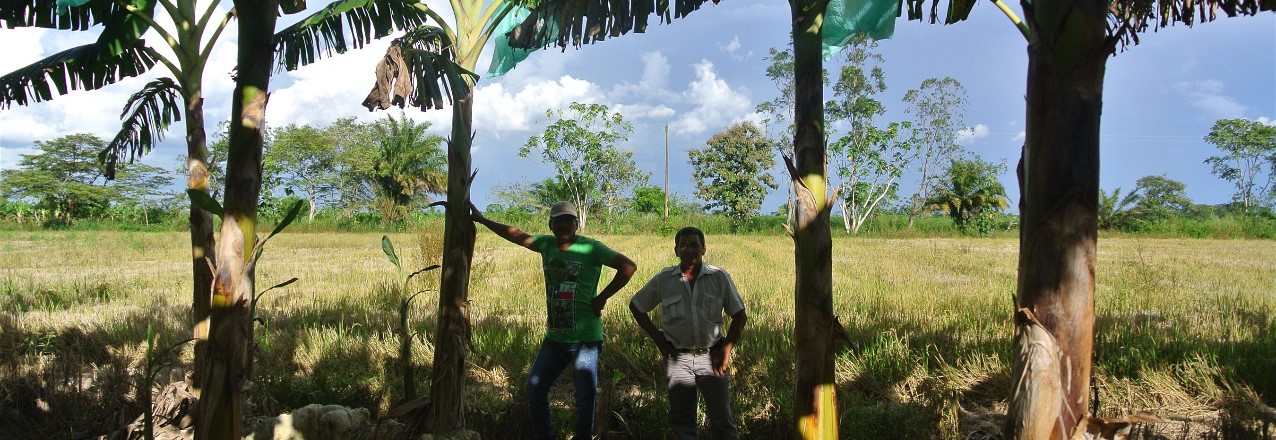How farmers in collective land ownership agreements are seeing their land rights disentangled, twenty years later.
MORE THAN HALFWAY THROUGH THE MANDATE OF THE VICTIMS’ LAW, THE LAND RESTITUTION UNIT CONTINUES TO PRODUCE THE NECESSARY TOOLS TO IMPROVE THE PROCESS OF RESTITUTION. RICARDO SABOGAL, DIRECTOR OF THE LAND RESTITUTION UNIT, SPEAKS ABOUT USAID’S SUPPORT IN STRENGTHENING RULING COMPLIANCE AND THE CREATION OF AN AMBITIOUS INFORMATION SYSTEM LAUNCHED IN 2017 WITH USAID SUPPORT.
A BLESSING IN DISGUISE
In 1997, the Colombian government gave Laurencio Avila and 19 other farmers a collective land grant to be divided amongst themselves and their families. The land had not been farmed, though some used it for grazing. The nearest main road was still not paved, and there was no access to basic services like water and electricity. Over ten kilometers away from the municipality center of Fuentedeoro, the 165 hectares of land, known as La Española, felt very isolated.
“We established a main camp up on that hill and started preparing the soil,” explains Avila. Under the deal, each farmer received eight hectares of land and agreed the farmers association that would eventually become a cooperative, meant to increase their ability to negotiate with buyers.
The group, which calls itself Asoproes, got off to a rocky start. With no previous experience in running a business this large, members made accusations against one another, distrust grew. The land reform project slowly fell apart. To make matters worse, the association’s president was disappeared by paramilitaries. Every year, the association had issues with members who could not pay their share of land taxes on time. Soon, the group began looking for ways to turn their communal property into individual parcels; a land title for each family.
“It was embarrassing, because we were these supposedly lucky beneficiaries, and everybody would ask us why we were still poor,” says Avila.
The group sent Julio Cesar Serrano, who was then emerging as the association’s new leader, to Bogotá to meet with public servants from former land administration entity, INCORA, to figure out what they needed to do to get individual property titles. In addition to giving the farmers more power over their futures, property titles are critical for opening doors to financing for rural citizens. Without individual titles, the farmers were losing bank credits that could help them buy inputs or hire labor at the right time. More than 15 years went by with little progress.
“Just two weeks ago, I went to the bank to ask for a loan, but without a cosigner, I don’t qualify. If I had a land title, the evolution of our business could be different,” explains Avila. “Eight million pesos I would have used to buy inputs and hire manual labor. Every year it’s the same, with no capital, the risk of loss is greater.”


